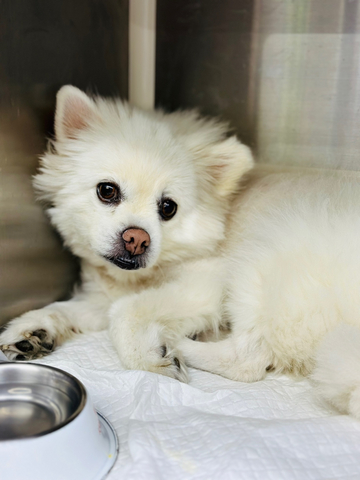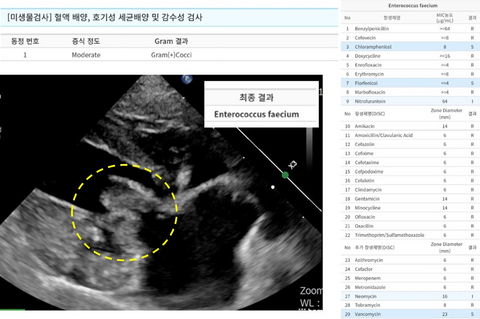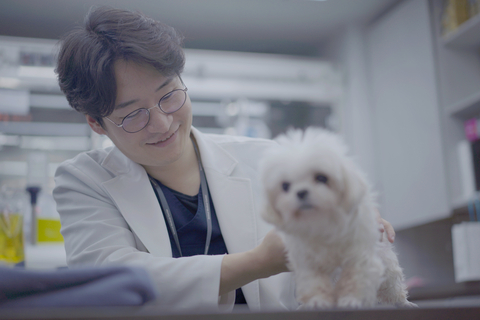ANYANG, South Korea--(BUSINESS WIRE)--The NEL Animal Cardiovascular Center said that its NEL Animal Heart Surgery Team has achieved the world’s first surgical success in treating canine infective endocarditis (IE) in a dog.
The South Korean veterinarian team led by Chief Veterinarian Dr. Taeheum Um has conducted a complex procedure using cardiopulmonary bypass (CPB) to resect and reconstruct a heart valve damaged by infection, in a case where conventional medical treatment had proven insufficient. This case marks the world’s first successful surgical intervention for canine infective endocarditis.
The patient, an 8-year-old, 6.2 kg Spitz, was a high-risk case with a medical history of Protein-Losing Enteropathy (PLE) and prolonged antibiotic use. The first surgery addressed a degenerative mitral valve damaged by myxomatous changes, significantly reducing regurgitation. The patient recovered well without the need for ongoing medication.
However, approximately four weeks post-op, a bacterial infection developed on the valve. Detailed diagnostics confirmed the presence of infective endocarditis caused by the multi-drug resistant bacterium Enterococcus faecium. The infection was likely due to intestinal barrier damage linked to chronic enteritis and long-term antibiotic treatment. Despite six weeks of intravenous antibiotic therapy, severe structural damage to the valve necessitated a second surgery.
In the second operation, the team performed anterior mitral valve leaflet patch augmentation, extending the shortened anterior leaflet using a bovine pericardial patch. This is a highly advanced technique borrowed from human cardiac surgery — and this marks the first time it has ever been applied to a dog.
The nine-hour procedure was successful, and the patient was able to discontinue all cardiac medications and diuretics. Now, over three months post-surgery, the dog is living a normal life without any syncope episodes. Considering the average survival period for dogs with infective endocarditis is around 70 days, this case — with the patient surviving and improving over 10 months post-onset — is a landmark achievement demonstrating the potential of surgical treatment.
Dr. Taeheum Um, lead surgeon of the NEL Animal Heart Surgery Team, stated, “This case is the first to prove that surgical treatment can be a viable option for canine infective endocarditis, a condition previously considered inoperable. It is a result of our cumulative experience in over 50 successful mitral valve surgeries. We will continue to monitor the case and publish our findings in academic journals.”
Building on this success, the team aims to expand the clinical scope of treatment for complex canine heart diseases and contribute critical data to the global veterinary cardiology community.
About NEL Animal Cardiovascular Center
The NEL Animal Cardiovascular Center is a 24-hour specialty veterinary hospital with expertise in heart surgery and intensive cardiac care. It also offers services in neurology (disc treatment), advanced diagnostics (CT/MRI), stem cell therapy, and orthopedic surgeries such as cruciate ligament and patella luxation repairs. NEL is the only private animal hospital in South Korea capable of performing both mitral valve surgery and open-heart surgery. The center also operates a specialized heart screening program for early detection and management of cardiac diseases.
Contacts
NEL Animal Cardiovascular Center
PR team
Yoo Sooyeon
+82-70-4016-9879
heart@thenel.org

An 8-year-old Spitz weighing 6.2 kg, successfully treated with surgery for canine infective endocarditis (Photo: NEL Animal Cardiovascular Center)

Severely degenerated mitral valve and proliferative vegetations were identified within the yellow circle. Infective endocarditis was definitively diagnosed through blood cultures and echocardiography (Photo: NEL Animal Cardiovascular Center)

Dr. Taeheum Um, Chief Director of the NEL Animal Cardiovascular Center (Photo: NEL Animal Cardiovascular Center)



